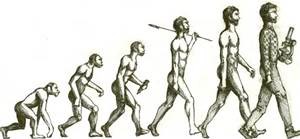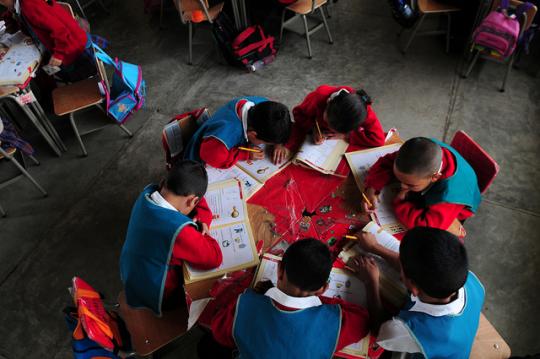As we continue our series on how the Mennonites transformed a wasteland into a garden, we come to their 8th principle of development – Education.
Unlike health care, which was a disaster because it was a second thought, education was at the forefront of their minds. Many of the colonies were established because the Mennonites chose to emigrate rather than have others decide what their children would learn.
One of them said, “If we cannot control our schools, we lose our children, and if we lose our children, we have no future.” How simple and prudent this thought! As I write it, I am struck by how many parents in so many countries, including my own, seem to lack this wisdom. Parents entrust the things that matter most, their children and their future, to state-sponsored schools. The education of their children is put in the hands of an atheistic state with no second thoughts.
 My good friend Christian Overman, himself an educator who has written for Darrow Miller and Friends, has put the question this way. If you were a Christian parent, would you send your children to a Buddhist school? A Hindu school? An Islamic school? Most would quickly answer no! Then he asks, Would you send your children to an atheistic school? Most would look startled! They routinely send their children to state-sponsored schools with a Darwinian ideology and think nothing of it.
My good friend Christian Overman, himself an educator who has written for Darrow Miller and Friends, has put the question this way. If you were a Christian parent, would you send your children to a Buddhist school? A Hindu school? An Islamic school? Most would quickly answer no! Then he asks, Would you send your children to an atheistic school? Most would look startled! They routinely send their children to state-sponsored schools with a Darwinian ideology and think nothing of it.
Not the Mennonites! They moved from one country to another to ensure they could educate their children the way they wanted. Some fled Russia, others fled Canada, so they could educate their children freely.
As historian Edgar Stoesz declared, “Education was an essential part of Mennonites’ sustainability and prosperity in Paraguay.”
While the Mennonites agreed on the importance of education, they had diverse views on how to educate. There were two principle approaches: the traditional and the progressive.
Paraguay Mennonites developed two streams of education
In the traditional schools, the main purpose was “to pass on the faith as it has been handed down through the generations.” Conformity and conserving were of chief value. Rather than standard class divisions, traditional schools used four categories. Children started in Fibler where they learned reading, writing, numbers and penmanship. In Katechismer they were catechized. Next was Testamentler where they memorized the Katechismus. Finally, in the Bibler, students read and memorized sections of the Old and New Testaments.
Some colonies subscribed to a more progressive approach to learning. They put education in the hands of a Society of Christian Education rather than in the hands of the church. The focus was not so much on catechizing as on a broader education. Standards were established for teaching and the treatment of students. Teachers were hired and fired based on these standards. The curriculum was expanded beyond the traditional education to add business and vocational training to help improve economic conditions in the colonies. A teachers’ training college was established to provide qualified teachers for more progressive education.
The goal of the more progressive education program was to both preserve the tradition and create innovators, a philosophy of preserving and progressing. Stoesz says that the function of the schools and their teachers was to “recover what is being lost, preserve what is worthwhile, and explore what is new.”
As the colonies expanded and flourished they added post-secondary instruction in four areas:
- Vocation and Agriculture
- Teacher Training
- Home Economics
- Theological Education
In addition to serving their own colonies, Mennonites understood the missional importance of education. They started schools for indigenous people living in communities near the colonies. This helped to develop indigenous peoples and their communities and brought them from poverty into a middle class. The colonies also started mission schools to use education as a tool for taking the gospel to Spanish-speaking Paraguayans.
The Mennonites understood the importance of education for the development of their own communities as well as the development of their indigenous and Spanish speaking neighbors.
- Darrow Miller






